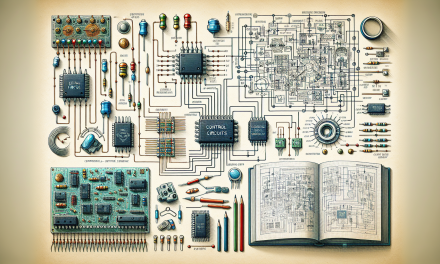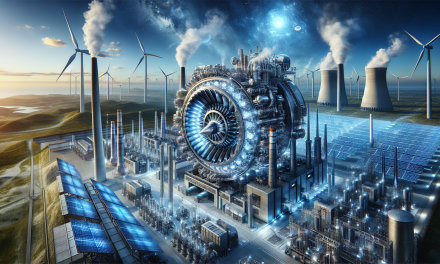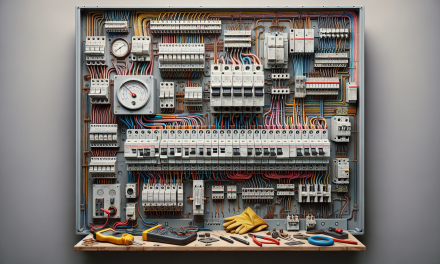Table of Contents
- Introduction
- The Importance of Understanding Electrical Power Systems
- Key Concepts in Electrical Power Systems
- Components of Electrical Power Systems
- Applications of Electrical Power Systems
- Safety Considerations
- Ways to Enhance Skills in Electrical Power Systems
- FAQs
- Conclusion
Introduction
Electrical power systems play a pivotal role in our daily lives. They keep our lights on, our appliances running, and our industries thriving. Yet, for many people who are not engineers, the intricacies of these systems can seem overwhelming. Fear not! This guide unlocks the essential facets of electrical power systems, breaking down complex concepts into easily digestible information.
The Importance of Understanding Electrical Power Systems
Understanding electrical power systems is vital in today’s technology-driven world. In order to work effectively in various industries, from agriculture to manufacturing, non-engineers benefit significantly from this knowledge. Not only does it enhance operational capability, but it also empowers individuals to contribute meaningfully to discussions surrounding energy efficiency and sustainability.
Energy Efficiency and Sustainability
As businesses and organizations strive towards sustainability goals, knowledge of electrical power systems becomes increasingly imperative. Transitioning to renewable energy sources requires a fundamental understanding of how these systems operate. Moreover, it fosters a culture of innovation aiming to enhance energy efficiency. For instance, organizations can learn how to implement innovative power generation solutions that align with modern sustainability practices.
Key Concepts in Electrical Power Systems
Before delving into specific components and applications, let’s explore a few foundational concepts that anyone interested in electrical power systems should grasp. Understanding voltage, current, and power is essential. These elements serve as the backbone of any electrical system.
Voltage, Current, and Power
Voltage can be thought of as the force that pushes electrical charges through a circuit. Current measures the flow of electrons, while power represents the amount of energy consumed or produced over time. These three elements are interconnected, and grasping their relationships is crucial for understanding the broader mechanisms at play.
Types of Power Systems
Electricity can be generated, transmitted, and used in various forms. Recognizing the different types of power systems—like AC (Alternating Current) and DC (Direct Current)—and their uses can enhance comprehension. Each type has unique advantages, which can significantly influence various applications.
Components of Electrical Power Systems
Understanding the components of electrical power systems allows non-engineers to appreciate how these systems interconnect to function effectively. Primarily, these components can be segmented into generation, transmission, and distribution segments.
Power Generation
Power generation plants serve as the starting point for electricity generation. Traditional plants rely on fossil fuels, while modern solutions increasingly incorporate renewables, such as wind and solar energy. To learn more about unlocking effective power plants, check out effective power plant operations and control techniques.
Transmission Systems
Once generated, power travels through transmission systems. These high-voltage lines transmit electricity over long distances. Understanding how transmission systems work helps in appreciating the distance power travels before reaching homes and industries.
Distribution Networks
Finally, distribution networks carry electricity from substations to individual consumers. Components like transformers and circuit breakers play pivotal roles in these networks. Non-engineers benefited from knowing how these components function, which leads us to safety awareness.
Applications of Electrical Power Systems
Electrical power systems find applications in various fields. Understanding these applications provides insight into their impact on daily life and business operations.
Industrial Use
Manufacturing processes rely heavily on electrical power systems. They drive machinery, manage lighting, and ensure operations align with safety regulations. Thus, it is crucial for personnel to enjoy foundational knowledge in electrical systems to facilitate smooth operational flow.
Residential Use
In homes, electrical power systems arrive as a lifeline, powering appliances, lighting, heating, and cooling systems. Understanding these systems also supports improved energy consumption habits and promotes safety at home.
Safety Considerations
Working with electrical power systems carries inherent risks, which emphasizes the necessity for proper safety measures. Learning about these systems aids individuals in recognizing hazards and implementing safety protocols.
Importance of Safety Training
For non-engineers, gaining insights into the safe operation and maintenance of components like circuit breakers and switchgear is crucial. Engaging with resources on the essential skills for safe operation and maintenance can help elevate workplace safety standards.
Ways to Enhance Skills in Electrical Power Systems
Enhancing skills in electrical power systems is easier than ever. With structured resources available, anyone can begin their journey towards mastering these essential systems. One excellent option involves comprehensive training designed for non-engineers. Consider exploring the Electrical Power Systems Training for Non-Engineers Course. This resource provides direct insights and practical knowledge critical for navigating this field.
Continuous Learning
In addition to formal training, continuous self-learning enriches understanding. Numerous online articles and blogs offer valuable insights into specific aspects, such as understanding electrical faults. Regular reading and engagement deepen knowledge and stay updated on industry advancements.
FAQs
What are electrical power systems?
Electrical power systems are a network of electrical components deployed to supply, transmit, and utilize electric power effectively. Understanding the components involved helps in maximizing efficiency and safety.
Why should non-engineers learn about electrical power systems?
Knowledge of electrical power systems benefits non-engineers in various industries by enhancing operational efficiency, promoting safety, and fostering participation in sustainability initiatives.
How can I enhance my skills in electrical power systems?
Engaging in formal training, like the Electrical Power Systems Training for Non-Engineers Course, reading articles, and involving oneself in community discussions are effective ways to enhance skills in this area.
What safety measures should I be aware of?
Being aware of safety measures, such as proper handling of electrical equipment, recognizing hazards, and understanding emergency protocols, is crucial when engaging with electrical systems.
Conclusion
In summary, grasping the fundamentals of electrical power systems is essential for non-engineers in today’s world. From understanding basic concepts to embracing safety protocols, this knowledge empowers individuals to contribute effectively in various fields. By taking advantage of resources and continuous learning opportunities, anyone can become proficient in navigating the complexities of electrical power systems, ultimately paving the way for a sustainable future.





